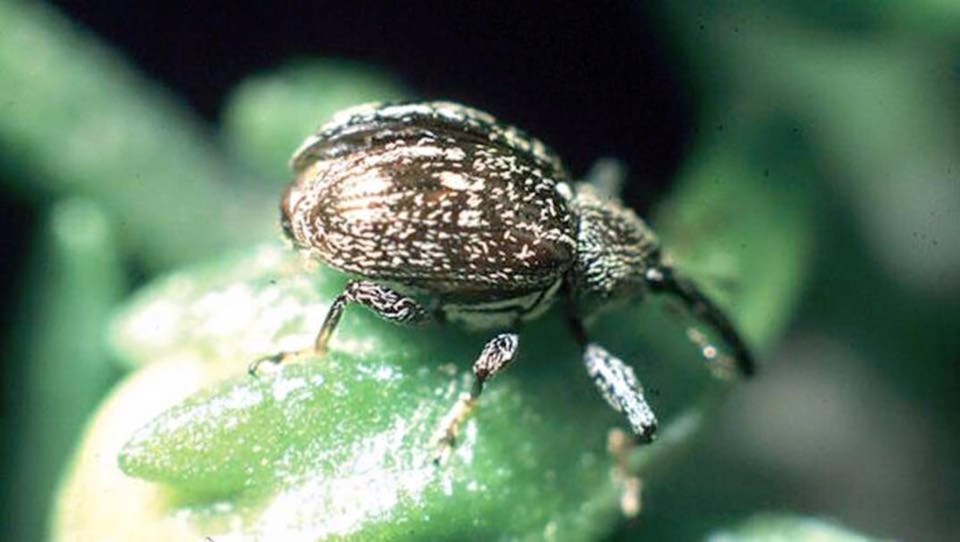Cobalt-60 and the Pepper Weevils.
It could be a great name for a fusion punk band, or the basis for scientific research related to miniscule doses of nuclear radiation to control agricultural pests. In this case, it’s the latter.
Radiation has been used for decades to control insect pests. It’s called sterile insect technique, and it’s very complicated and quite simple at the same time. It has to do with mating.
University of Guelph School of Environmental Sciences professor Cynthia Scott-Dupree is looking into using it as a kind of birth control method for the pepper weevil, a tiny, hairy-looking bug that burrows into peppers and devours them from the inside. It’s a big, devastating problem for pepper growers in Ontario and beyond.
“In Ontario, we grow a lot of peppers in fields and greenhouses, and thus the concern about it in our agriculture sector in the province,” she said in an interview.
Scott-Dupree, who holds the Bayer CropScience Chair in Sustainable Pest Management, said she has entered into a multi-year study in conjunction with Bruce Power in Tiverton, ON, and Nordion, a supplier of medical isotopes, to use Cobalt-60 to sterilize pepper weevils.
“Sterile insect technique, which is basically the birth control method I’m working with for these particular insect pests, was developed in the 50s, initially to control screwworms in cattle,” she said. “It has proven very successful wherever it has been used.”
There is a successful program using Cobalt-60 that controls codling moth, an apple pest, in the Okanagan Valley.
While this kind of thing has been done before, figuring out the exact dosage of radiation needed to do the job involves some highly involved and precise science. It will take time.
“We will rear pepper weevil in the lab, and then we will expose them to Cobalt-60 radiation in a contained facility, which will be Nordion in Ottawa,” she explained. “What we’re focusing on is finding the right dose that will sterilize the insect, but not affect any of their behavioural traits. They have to look and act like normal pepper weevil.”
If sterile weevils can be produced under highly controlled and contained laboratory conditions – and there is a strong likelihood they can be - the goal is to then incorporate them into greenhouse environments to control the populations. Sterile weevils mate with unsterilized ones, rendering the eggs unviable, thereby controlling the population.
At the same time, such an innovation is expected to reduce the dependency on insecticides to control the pest.
Cobalt-60 is a radioactive form of cobalt produced in Bruce Power’s nuclear power reactors. It is used to help sterilize medical devices, and treat brain tumours.
The use of Cobalt-60 to control pests is considered environmentally friendly. There is no danger of the pepper weevils spreading radiation, Scott-Dupree said.
